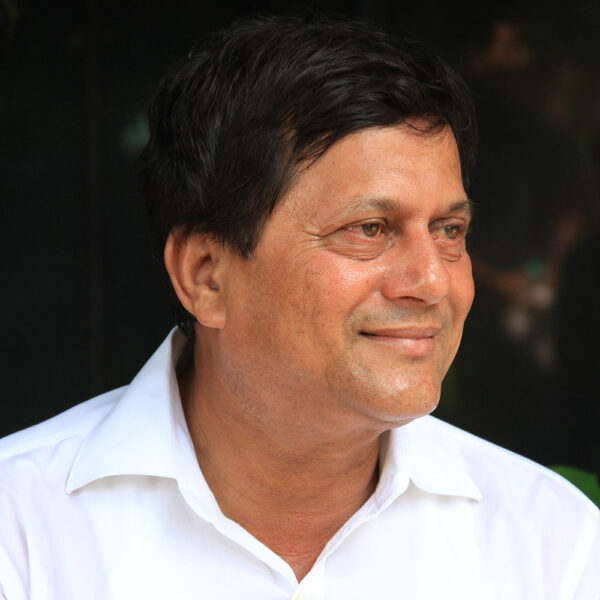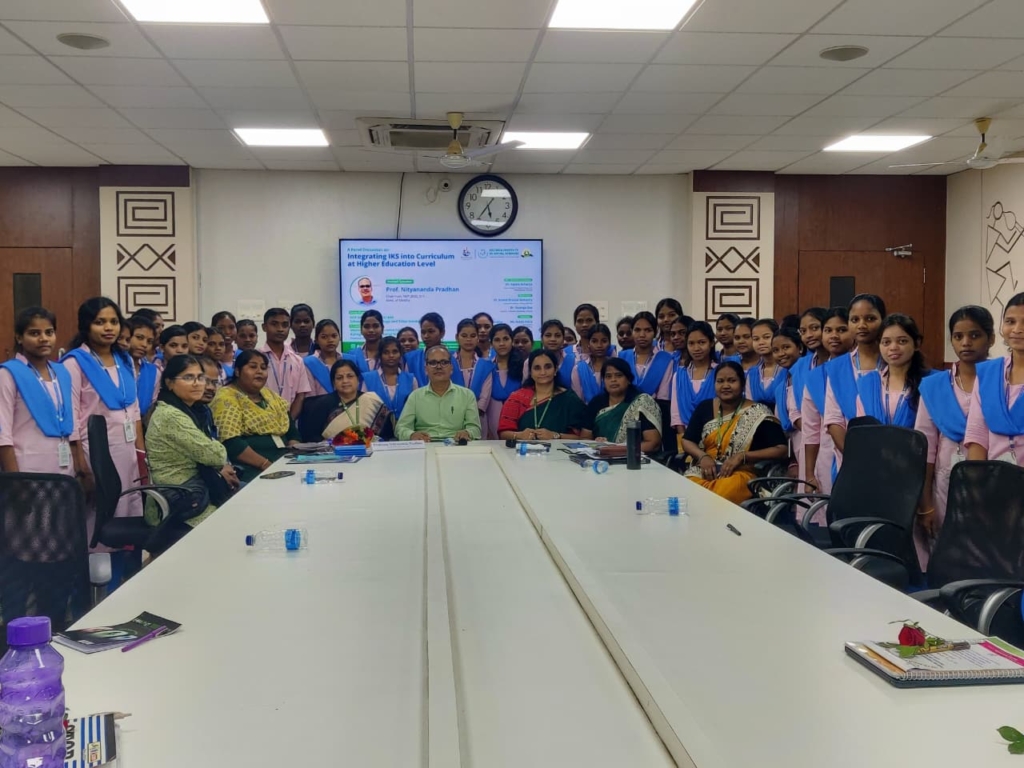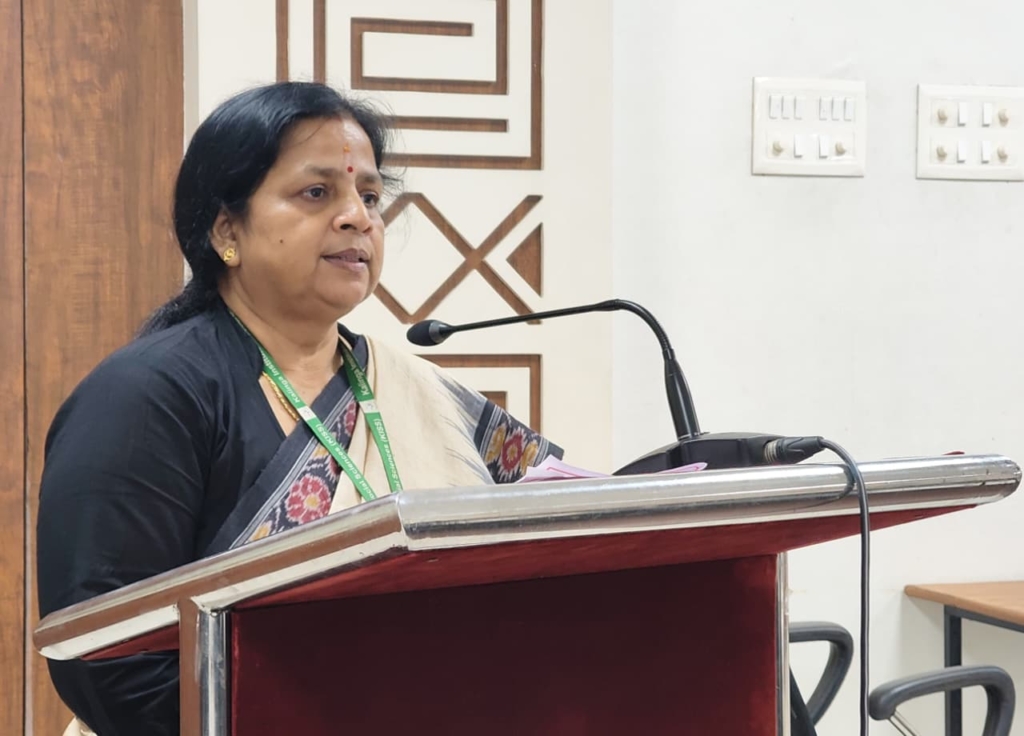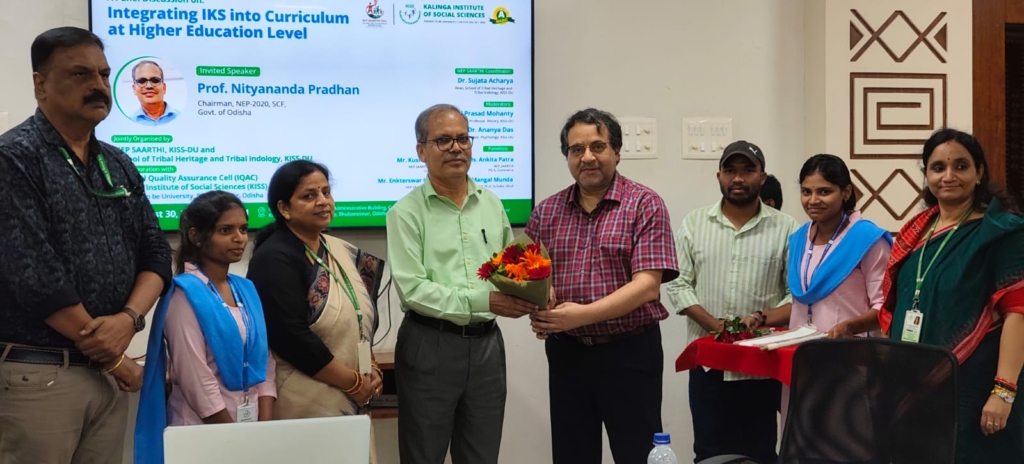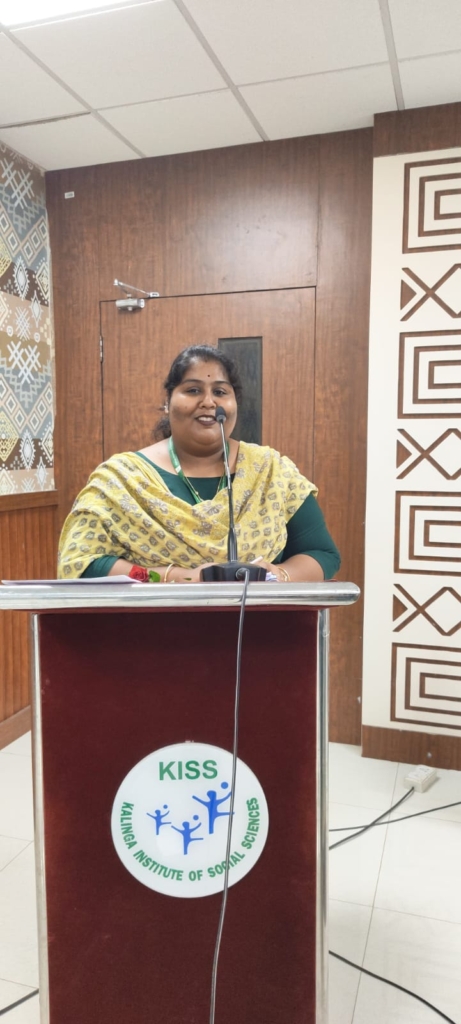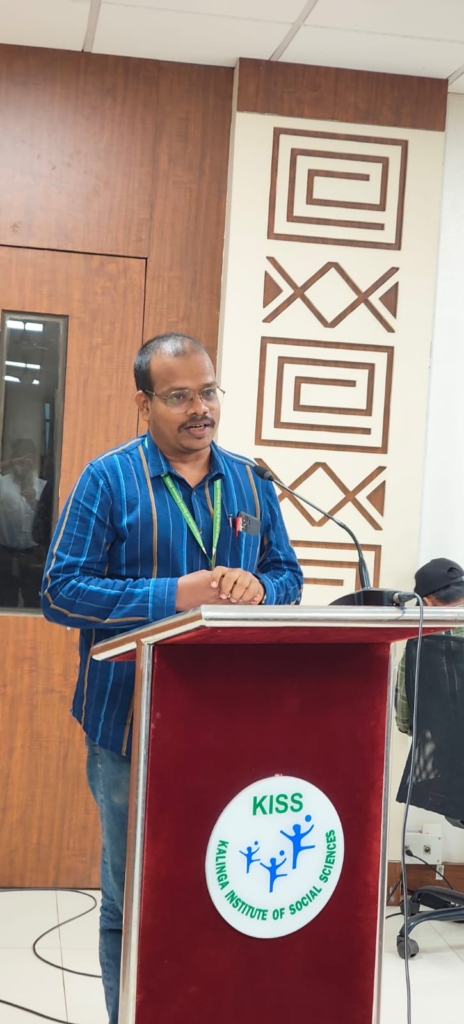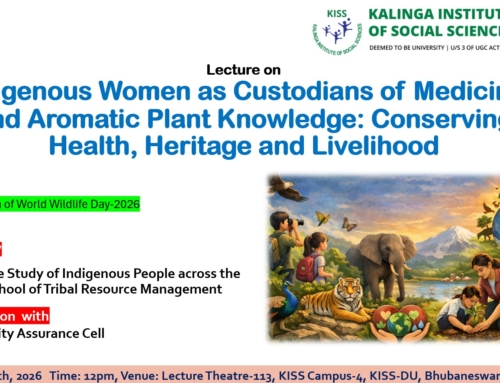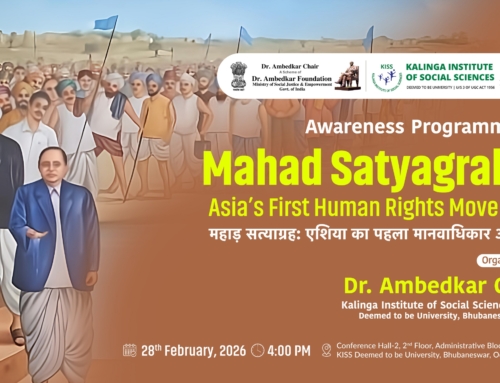The NEP SAARTHI (Student Ambassador for Academic Reforms in Transforming Higher Education in India) Cell along with School of Tribal Heritage and Tribal Indology (STHTI) jointly organised a Panel Discussion on “Integrating IKS in Higher Education Level” in collaboration with IQAC, KISS-DU on 30th August 2025.
The panel discussion was inaugurated by the Vice Chancellor of KISS-DU, Prof. Debashis Bandyopadhyay. In his inaugural address, Prof. Bandopadhyay emphasised the university’s role as a pioneer in adopting the NEP-2020 guidelines and its dedication to providing balanced curriculum that combines modern academic rigour with the rich heritage of IKS.
Dr. Sujata Acharya, Dean, STHTI and NEP SAARTHI Coordinator at KISS-DU, in her welcome address, set the tone for the discussion by articulating the event’s objectives and introducing the distinguished guests and panelists. She underscored the importance of integrating traditional knowledge to foster a sense of identity and ethical values among students.
Prof. Nityananda Pradhan, Chairman, NEP-2020, State Curriculum Framework (SCF), Govt. of Odisha, the Resource Person spoke on “Integrating IKS into Curriculum at Higher Education Level” in which NEP SAARTHIs of KISS-DU, Mr. Kusha Mandika, Ms. Ankita Patra, Mr. Mangal Munda, and Mr. Enketeswar Kandagari were the Panelists. Professor Pradhan provided valuable insights into the Policy’s rationale behind promotion of IKS in education. He discussed on intellectual, philosophical and artistic traditions of India which are to be incorporated into the curriculum to make the learners aware of ancient knowledge and wisdom.
The panel discussion that followed was moderated by Dr. Kamal Prasad Mohanty (Assistant Professor in History) and Dr. Ananya Das (Assistant Professor in Psychology).The event concluded with insightful remarks from Dr. Snigdharani Panda, Chairperson of the Council of Deans and Director of IQAC, KISS-DU. Dr. Panda summarized the key takeaways from discussion, highlighting the consensus on the need for a phased and well-structured approach to IKS integration. She praised the constructive dialogue among all participants and called for continuous collaboration to ensure the successful and impactful implementation of NEP-2020’s vision.

